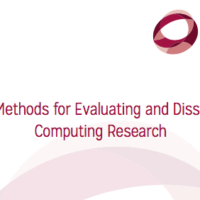
CCC Releases Evolving Methods for Evaluating and Disseminating Computing Research White Paper
The Computing Community Consortium (CCC) has released a white paper titled Evolving Methods for Evaluating and Disseminating Computing Research.

Archive of articles published in the 2020 issue.

The Computing Community Consortium (CCC) has released a white paper titled Evolving Methods for Evaluating and Disseminating Computing Research.
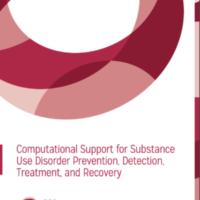
The Computing Community Consortium (CCC) is pleased to announce the release of the Computational Support for Substance Use Disorder Prevention, Detection, Treatment, and Recovery Workshop Report.

CRA has recently hired Colin Karnes as a research assistant for CRA’s Center for Evaluating the Research Pipeline (CERP). In this role, Colin supports CERP activities, as they relate to CERP’s research and administrative tasks.
Prior to joining CRA, Colin worked as a graduate research assistant at the Department of Public and Nonprofit Studies at Georgia Southern University. Colin holds a Master of Public Administration degree from Georgia Southern University (2019) and a Bachelor of Arts in Social Sciences from the University at Buffalo (2014). He has experience in public education, nonprofit administration, and corporate governance. In his free time, Colin enjoys reading, volunteering, and exploring Washington, DC.

CRA is sad to report that former CRA and CRA-W Board Member Frances “Fran” Allen passed away yesterday. Fran spent her career advancing the field of computing and inspired generations of technologists. She was a computing pioneer – the first woman to receive the A.M. Turing Award (2006) and the first woman to be named an IBM Fellow in 1989. Fran served as a speaker for CRA-W’s Discipline-Specific Mentoring program in 2008 and Career Mentoring Workshop in 2005.
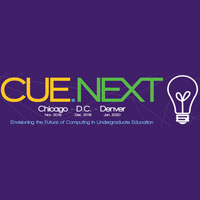
Computing and Computer Science have become relevant to undergraduate education in all disciplines. Academic institutions are challenged to meet the demand of the growing and increasingly diverse student body seeking to learn more about computing, computer science, and the role of computation in their own disciplines. Courses and curricula aimed at teaching CS majors generally do not meet the needs of this growing student audience.
Three NSF-funded workshops were held between November 2019 and January 2020 to initiate a national dialog on envisioning the future of computing in undergraduate education (CUE). Applications were solicited from teams of 2 to 5 faculty, educators, or administrators. Each team including at least one member from a computing-centric department (including CS, CE, ECE, IS) and at least one member from a non-computing centric discipline. The three workshops drew a total of 201 participants forming 50 teams from 66 institutions, with slightly more than half the participants (106) from non-computing departments. The majority of the participants came from Ph.D. granting institutions; non-Ph.D. or -M.S. granting institutions included ten 4-year liberal arts colleges, four HBCU’s, one community college, and one Hispanic serving institution. This article summarizes perspectives, challenges, and potential strategies around a variety of themes that emerged during the discussions. For the full workshop report see https://sites.northwestern.edu/cuenext/.
The amount of pain and suffering we are witnessing and feeling is only a snapshot of a broader social reality. We, and everyone before us, have had a role in arriving at where we are today. As such, it is of paramount importance to step up and take a stance. It is our responsibility and a moral imperative to not stand by and simply witness the events around us. We must collectively find our voice and reject racism and inequality. Silence perpetuates, doubt reinforces, and rationalization of incident after incident only compounds the pain so many in our society continue to endure.
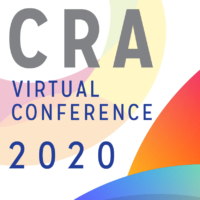
While the biennial CRA Conference at Snowbird will be postponed to next summer, we will be holding an online meeting this summer on Wednesday, July 22nd, and Thursday, July 23rd. The conference will run each day from approximately 8:30 AM Pacific/11:30 AM Eastern to 2:00 PM Pacific/5:00 PM Eastern. A detailed schedule and registration information will be forthcoming, but here are some of the events that are planned:
As is traditional, each CRA member representative will receive an invitation to this meeting. For more information contact VirtualConference@cra.org. Please save the date, and we look forward to seeing you online!
Sincerely,
Ran Libeskind-Hadas – Chair
James Allan – Co-Chair
On Monday, June 22nd, President Trump issued the latest in a series of immigration and visa related orders designed to limit the involvement of foreign students and researchers, in particular those from mainland China, in U.S. research efforts. The order follows a series of other proposals and orders emanating from the White House and Capitol Hill that have raised the ire of higher-education, U.S. industry, and the computing research community over recent weeks. The proposals — two proclamations, Senate legislation and bicameral legislation — all have the stated goals of protecting U.S. jobs from foreign competition or protecting U.S. research from foreign exploitation, but in CRA’s analysis would likely do more damage to the U.S. research ecosystem than the threats they are trying to address.
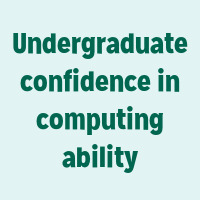
CERP analyzed the results of the 2018 Data Buddies Survey and discovered areas where undergraduates indicate their confidence in computing abilities. Additionally, CERP uncovered some significant differences in confidence levels between students who are underrepresented and non-underrepresented.
The CRA Education Committee (CRA-E) recently welcomed four new members to the committee: Monica Anderson, Michael Hilton, Amy Ko and Kelly Shaw.
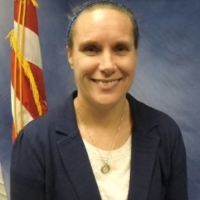
The Scholarships for Women Studying Information Security (SWSIS) program provides scholarships of up to $10,000 for women earning their Bachelor’s and Master’s degrees in fields related to information security. The scholarships support collegiate women working to join the growing security industry through academic funding and mentoring opportunities. Over the past eight years, SWSIS has supported more than 90 women for one to two years each and have funded more than $625,000 in scholarships, providing assistance at the formative stages of their careers.
This website uses cookies so that we can provide you with the best user experience possible. Cookie information is stored in your browser and performs functions such as recognising you when you return to our website and helping our team to understand which sections of the website you find most interesting and useful. You can adjust all of your cookie settings.
